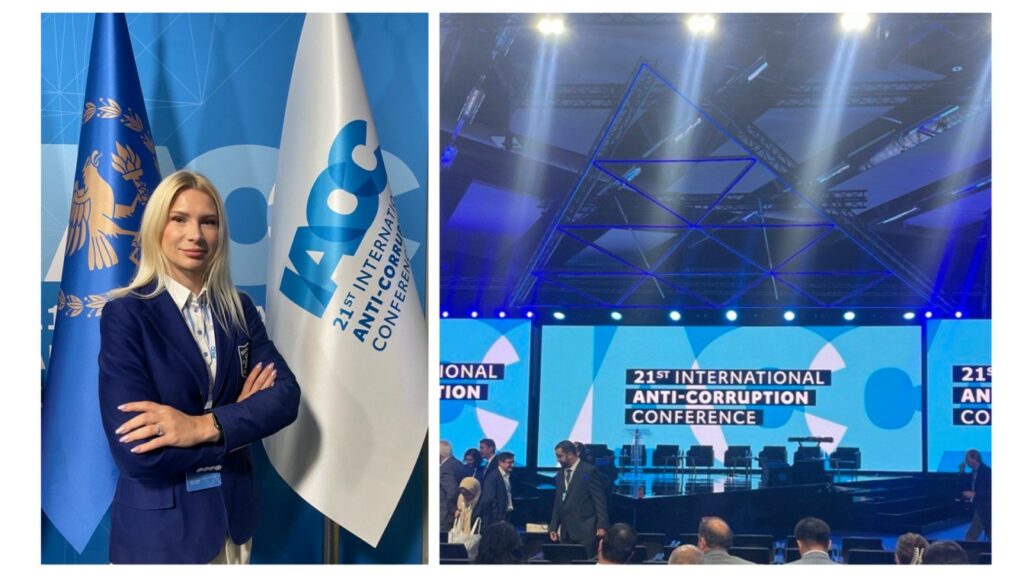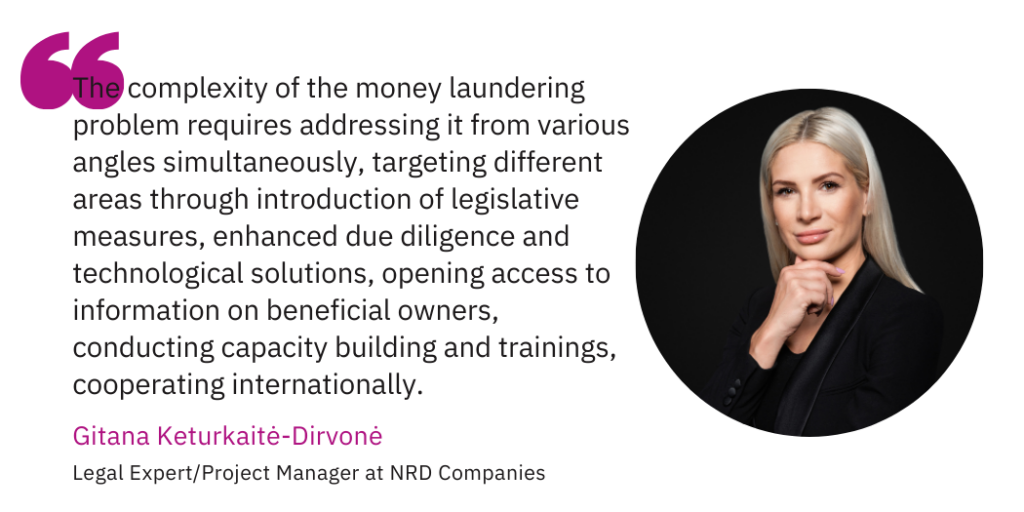Money laundering represents a severe global threat that demands immediate attention. The United Nations Office on Drugs and Crime (UNODC) estimates that the amount of money laundered globally each year is between 2-5% of the global GDP, translating to between 715 billion and 1.87 trillion EUR annually. These figures may be even higher, given the difficulty in accurately estimating the total amount of money circulating through laundering cycles.
Money laundering is a sophisticated process of disguising the origins of illegally obtained money, typically through a series of complex transactions to make it appear legitimate. This process is not only about moving staggering sums of money worldwide but also about fueling other criminal activities such as terrorism, drug and arms trafficking, and human exploitation. Consequently, the impact of money laundering extends far beyond financial transactions, affecting various aspects of society and posing serious risks to global security and stability.
21st International Anti-Corruption Conference

The 21st International Anti-Corruption Conference comprehensively addressed these pivotal issues, with NRD Companies legal expert, Gitana Keturkaitė-Dirvonė, actively engaging in discussions on the pressing challenges of corruption. Here are some key insights gleaned from her participation in the conference:
1. Corruption vs. Democracy: Corruption thrives in non-democratic regimes, with the most corrupt countries often being autocracies.
2. No Sector Immune: No sector can fully insulate itself from crime and corruption. Vigilance is needed across the board.
3. International Milestones: The adoption of the OECD Convention on Combating Bribery of Foreign Public Officials, just 25 years ago, marks a significant step in the global fight against corruption.
4. Balanced Approach: Combating corruption requires a balanced strategy – condemn wrongful actions while also promoting hope and impactful solutions. Highlighting positive progress fosters accountability and proves that corruption can be overcome.
5. Measuring Progress: Success in fighting corruption should be measured by tangible improvements and effective implementation of anti-corruption initiatives, not just the number of prosecutions.
6. Sustainability: Maintaining accountability for past actions is crucial. Sustainable results require consistency rather than starting fresh each time.
7. Licit Enablers: Often overlooked, licit enablers such as lawyers, bankers, and accountants play a significant role in corruption. Addressing their involvement is essential.
8. Tech Empowerment: Technology is a powerful tool in the fight against corruption. Linking digital registries for land, property, and sea records across countries could help trace illicit funds and properties, aiding recovery and restitution.
9. Global Collaboration: Corruption is a transnational issue requiring close international cooperation. Effective measures depend on the sharing of information, resources, and strategies among nations.
10. Systemic Issue: Corruption is not just about individuals or specific actions; it’s a systemic issue demanding systemic responses.
11. Innovation in Technology: Criminals are early tech adopters. To combat corruption effectively, continuous innovation and leveraging of technology are crucial.

How to Fight Money Laundering and Corruption
A beneficial ownership register should be seen not only as a tool for ensuring compliance with international Anti-Money Laundering/Counter Financing of Terrorism (AML/CFT) standards but also as an effective measure promoting corporate governance, preventing tax evasion, combating corruption, and encouraging investment. Such a register contributes to a more transparent, accountable, and trustworthy business environment, crucial for upholding international AML/CFT standards, ensuring effective governance, regulatory compliance, and attracting new investments.
Transparency in AML/CFT compliance involves the disclosure of beneficial ownership information and making this information accessible to competent authorities, enabling effective investigations and prosecutions of money laundering and terrorist financing offenses. This can be effectively achieved through the introduction of a digital tool like a beneficial ownership register.
Maintaining a beneficial ownership register helps prevent anonymity and concealment of the true owners of assets and entities, making it more difficult for criminals to use these entities for illicit purposes. Accurate and up-to-date beneficial ownership information enables financial institutions, regulatory authorities, and law enforcement agencies to conduct risk assessments and perform due diligence effectively.
Beneficial Ownership Register by NRD Companies
In the domain of AML/CFT compliance, NRD Companies offers the Beneficial Ownership e-Register (BOREG©), a digital solution compliant with international requirements. BOREG© enables a smooth transition towards transparency of beneficial ownership. The core components of BOREG© allow company representatives to connect and submit all necessary data to the Beneficial Ownership Register, providing verified data to authorized third parties.
With 27 years of experience and over 350 projects in more than 55 countries, NRD Companies has completed over 150 register-related projects worldwide and is considered a leader in state registers’ transformation.
Contact Us
Learn more about effective strategies and tools like BOREG©. Together, we can protect global economies.


Thank you!
We will contact you soon!

















